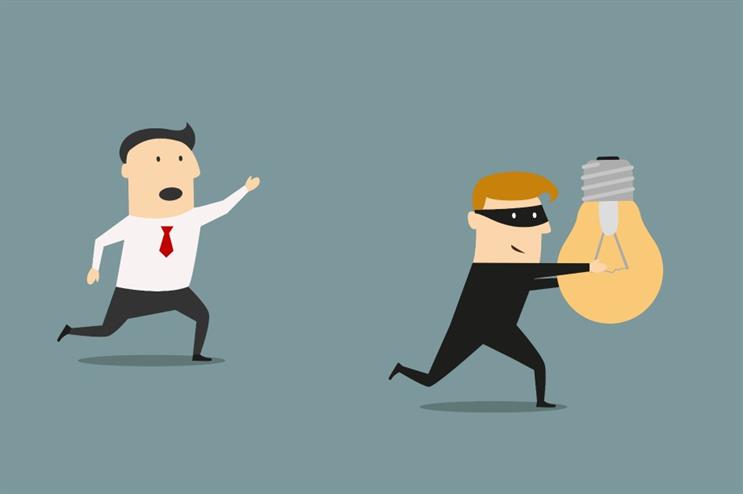
While there are grounds to protect work through copyright law, taking the time to prove a creative idea was original is time-consuming, laborious and fraught with complications. Defendants can easily claim they dreamt the idea up completely independently, while taking an idea as 'inspiration' and modifying it for another brief is, lamentably for some, viewed as fair game.
"In all honesty, protecting creative ideas from copycats is virtually impossible," said Paul Gascoigne, group creative director UK at Momentum Worldwide. "When many believe endlessly trawling the web is the route to inspiration, there is always someone willing to take the easy option of 'adopting' someone else's ideas."
He continued: "The only way to combat copycats is to be first with new experiential ideas, concepts, or technologies. Original ideas seamlessly fit the client brands we create them for. Copycat ideas are false brand experiences because the original thinking was crafted for an unrelated - though sometimes competitive - brand.
"Imitation may be "flattery at its greatest" but if agencies do little more than copy each other, they are doing nothing more than limiting the potential of the experiential sector."
Laura Capell, managing director of Sledge, said she believed the sector is, by and large, good at self-policing itself from plagiarising creative ideas. "Across the majority of agencies, there is a mutual respect of other people's work and you don't often see ideas being copied once they've already made it to the live space," she explained. "The beauty of our industry is that it's full of inspiration and the healthy competition around creativity breeds lots of fresh and innovative ideas, so in that sense I don't think that copycats are that prevalent.
"Creatives are so often proud and want to break new ground, not rehash the old or done."
The threat of the client
However, she noted that it's usually within the pitching process, when an agency literally lays all of its best creative ideas down on the table, that ideas are stolen. She recalled: "There was a pitch we participated in a few years ago that we did not win. Six months later, a very familiar idea made it into the mainstream.
"We approached the client and were told that our non-disclosure act had been upheld, we chose not to take them to court due to publicity and cost. It does however mean that clients can continuously get away with doing what they want as agencies such as ourselves don't feel like we would ever win in a battle."
Gascoigne has experienced similar breaches from the client's side. "Yes ideas have been copied, but more often than not as a result of client action," he said. "For example, taking ideas presented in a pitch, complete with copyright statements, straight to another agency with the instruction to 'do this for less than their quote.'
"Any experiential business agreeing to such practices do themselves, and our community, a huge disservice."
Protecting ideas
So how do you protect yourself as an agency from clients such as these? David Atkinson, managing partner at Space, offered practical advice: "The offers an excellent Pitch Protection Service, which enables member agencies to protect their work pre-pitch."
To sign up to the service, agencies must send the MAA an application form and hard copies of pitch documents. Within 24 hours of receipt, the association promises to email a pitch registration certificate as well as a copyright and confidentially notice that can be used in pitch materials. Agencies can also register their pitch documents after a pitch, although this process can be less valuable.
Atkinson added: "We also occasionally file our pitch document with Couchmans, The Sports Business Lawyers, who are experts in IP, when working in sport and entertainment. But to date, we've never had to exercise the protection or use it in a live case.
"Inevitably, when a brief is very specific, it's possible that similar ideas may come from more than one agency."
And for Gascoigne, the solution to solving IP disputes in the experiential world is self-regulation, and by encouraging true creativity within agencies. He explained: "The only regulatory method with any hope of success lies with agencies policing themselves to not rip the ideas of competitors. As a creative lead, I challenge teams to always strive for originality rather than take the easy, plagiaristic way out.
"Copycat creatives in copycat agencies may think they'll safely get away with it, but should consider how successful their next job interview will be when passing off copied work as their own. Believe me when I say, those of us who've been around for a while really have seen it all before."
More:
Comment below to let us know what you think.
For more in-depth and print-only features, showcases and interviews with world-leading brands, don't miss the next issue of Event magazine by .

